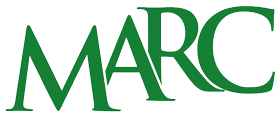
India’s healthcare sector is experiencing remarkable growth and is expected to reach a market size of around $610 billion by 2026. It shows that the healthcare sector will reach new heights in the coming years.
However, this rapid expansion also brings complexity to valuing healthcare businesses. Valuation isn’t about numbers – It’s about making informed investment decisions and successful mergers and acquisitions.
So, whether you’re planning for acquisition, seeking investors, or strategizing for growth, getting accurate valuation consulting in India is essential for success.
In this blog, we’ll understand the key elements influencing healthcare valuations, businesses’ everyday challenges, and strategies to achieve accurate assessments.
Understanding Valuation in the Healthcare Sector
Valuing businesses in the healthcare sector is often more complex than other industries. Because healthcare services have unique features, strict regulations, and continuous medical technology upgrades, it is challenging to value healthcare businesses. There are various factors to consider when valuing the healthcare sector, including buildings, equipment, the company’s reputation, patient trust, and future growth plans.
Key Factors that Influence Valuation of Healthcare Business
Here are some key aspects of healthcare valuation:
1. Tangible Assets
Tangible assets are those physical assets that a healthcare business owns that include:
- Buildings: Hospitals, clinics, or medical centres.
- Medical Equipment: MRI machines, X-ray machines, and other medical tools.
- Infrastructure: Physical setup of the business, such as operating rooms, waiting areas, and even parking lots.
2. Intangible Assets
Intangible assets are those things that don’t have a physical form but still add value to the business, including:
- Reputation: How well-known and trusted the healthcare provider is. Because a good reputation brings more patients.
- Intellectual Property: It can be inventions, medical treatments, or research the business owns—for example, patents for new treatments or technologies.
- Patient Loyalty: If patients keep returning and trusting the provider, it adds value to the business.
- Brand: How do people perceive the hospital, or do they consider it the best hospital in town?
3. Future Growth Potential
This refers to the ability of a healthcare business to expand and thrive in the future. Key factors to consider include:
- Demographic Trends: The growing population and older people show the need for healthcare services.
- Technology Advances: New medical technologies, like telemedicine or robotic surgeries, can make the business more efficient and helpful to patients.
- Government Policies: Government programs create new opportunities for growth or make it easier for the business to succeed.
4. Regulatory Environment
The healthcare sector is heavily regulated, with businesses required to adhere to numerous rules and regulations, including:
- Laws and Rules: Healthcare businesses must follow patient care, safety, and privacy laws. If they break the rules, it could hurt their value.
- Certifications: Healthcare providers may need to get certified by official organizations (like NABH or JCI) to prove they meet high-quality standards. Being a certified business shows its value and trustworthiness.
5. Revenue Streams
It refers to how many ways a healthcare business is making money and how strongly it manages cash flow. Some common ways healthcare businesses earn income include:
- Fee-for-Service: Patients pay for each service they receive, such as a doctor’s visit or surgery.
- Insurance Reimbursements: Healthcare providers get paid by insurance companies for treating patients covered by health insurance.
- Subscription Models: Some healthcare businesses offer regular services like wellness programs or yearly health check-ups, providing a steady income.
These key factors influence the valuation of healthcare businesses in India.
Also Read: How do I choose the best healthcare market research firm?
Strategies for Accurate Valuation Assessments
Here are some key strategies used for accurate valuation assessments:
1. Comprehensive Financial Analysis
The first way to assess the healthcare company’s valuation is by looking at its financial health. It’s important to review financial documents such as income statements and balance sheets to determine if the business is generating sufficient revenue and managing its debts effectively. A company with consistent profits, low debt, and strong cash flow is financially stable and holds more incredible value. On the other hand, financial instability, high debt, or irregular earnings can make the business a riskier investment, decreasing its overall worth.
2. Assessing Market Demand and Growth Potential
The next step is to evaluate market demand by determining how much people need the company’s healthcare services. High and consistently growing demand indicates a substantial opportunity for the business to expand over time.
Additionally, if the healthcare provider plans to introduce new services or enter new markets, it has a more significant potential to increase revenue and drive future growth. Understanding the target audience’s needs and staying ahead of healthcare trends are crucial for maximizing this potential.
3. Evaluating Competitive Position
Another way to evaluate a company’s worth is by looking at its competitors’ worth in the same field. Is it best in town? Does it offer unique services or have an excellent reputation? This comparison helps assess the business’s performance compared to competitors on different parameters like revenue per patient, profit margins, operating costs, patient satisfaction scores, reputation, and market share. If a healthcare business is doing better than competitors, it gives a competitive edge. By evaluating competitive positions, you can determine which company offers better services and where the loyal patient base is high. A strong, loyal patient ensures a strong reputation and high company value.
4. Reviewing Regulatory Compliance and Accreditations
Every healthcare business must comply with strict regulations concerning patient safety, privacy, and quality of care. Adhering diligently to these standards minimizes the risk of legal issues and enhances the business’s value. Conversely, failing to meet these regulatory requirements can lead to legal challenges, reputational damage, and a decrease in the business’s value over time.
5. Assessing Assets
When valuing a healthcare business, assessing assets is crucial. Two types of assets need to be considered, i.e., tangible and intangible. Tangible assets include hospital buildings, medical equipment, and infrastructure. On the other hand, intangible assets include reputation, patient loyalty, and brand value. Assessing these assets ensures a business’s long-term growth and how strong its foundation defines overall value.
6. Conducting a SWOT Analysis
A SWOT analysis evaluates a business’s Strengths, Weaknesses, Opportunities, and Threats. By identifying strengths, such as a skilled medical team or cutting-edge technology, a company can understand how to leverage these advantages. Weaknesses, such as outdated equipment or a small patient base, highlight areas that need improvement. Identifying opportunities, such as expanding to new locations or introducing telemedicine services, reveals the business’s potential for growth. Finally, recognizing threats like increasing competition or new regulations helps the business anticipate risks and prepare for challenges. A comprehensive SWOT analysis provides a clear picture of a healthcare business’s capabilities and external market conditions, aiding in the determination of its overall value.
Read Here: Transforming Hospitality Businesses: Discover the Power of India’s Top Hospitality Consultants
MARC – Your Trusted Valuation Partner!
When it comes to valuing your healthcare business, MARC stands out as a trusted business consulting firm providing top-tier valuation services across India. Our dedicated team of specialists is committed to delivering precise and reliable evaluations tailored to the unique needs of healthcare businesses. With our expertise and unwavering focus on quality, we ensure you receive the comprehensive insights necessary for informed decision-making.
How Can MARC Help You?
When it comes to business valuation, accuracy and expertise are non-negotiable. At MARC, we have a team of experienced professionals who simplify the valuation process and provide clear, actionable insights tailored to your needs. Here’s how we can help:
Valuation of all or part of a business
Thinking of selling your business or evaluating its worth? We at MARC conduct a detailed analysis of your company’s financials, market conditions, and operational strengths to give you a precise picture of its current value.
Projected valuation for mergers, acquisitions, or alliances
Planning a merger, acquisition, or partnership? Our projected valuations consider your business’s growth potential and market trends, helping you make smart decisions with confidence.
Restructuring valuations for businesses
Restructuring can be complex, but we make it manageable for all our clients. Whether you’re reorganizing the entire business or a specific segment, we provide valuations that help you understand where value lies and how to unlock it.
Valuation for asset-backed lending
Need a valuation to secure a loan? We assess your assets’ worth with precision, giving lenders and borrowers the confidence to move forward with clarity.
Valuation for fairness in transactions
Wondering if you’re paying or receiving the correct value in a transaction? Be it a “contribution-in-kind” or another deal, we ensure the numbers are fair and compliant with the standards.
Contractual valuation for dispute resolution
Disputes can get messy, but having a precise valuation can help resolve them. We provide unbiased assessments to help resolve conflicts, ensuring both parties have a fair understanding of the contract’s value.
Frequently Asked Questions (FAQ)
Healthcare businesses have unique valuation factors, including medical equipment, regulations, patient trust, and technological advancements. These factors make it complicated as compared to others.
Tangible assets include hospital buildings, medical equipment, and infrastructure. Intangible assets include reputation, patient loyalty, and intellectual property, such as patents or exclusive treatments.
High and growing demand for healthcare services can increase the potential for future growth and raise its value.
Some of the key risks include regulatory changes, legal issues, rising competition, technological obsolescence, and shifts in patient demand. These risks can decrease a business’s value if not properly managed.
MARC has expertise in healthcare business valuations by analyzing financial health, market demand, assets, and regulatory compliance.

